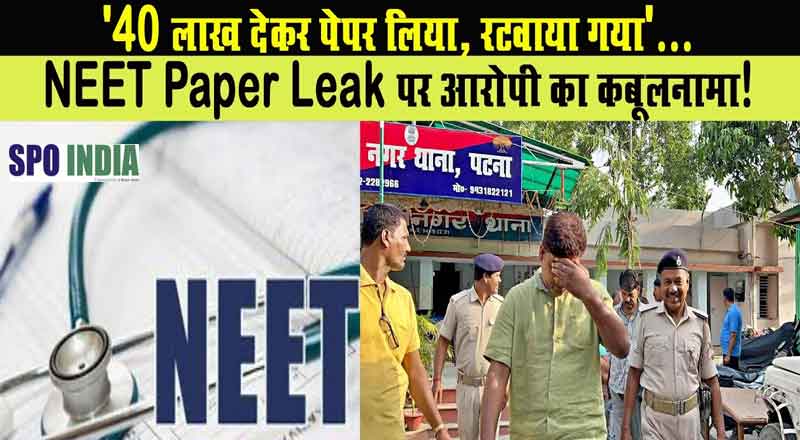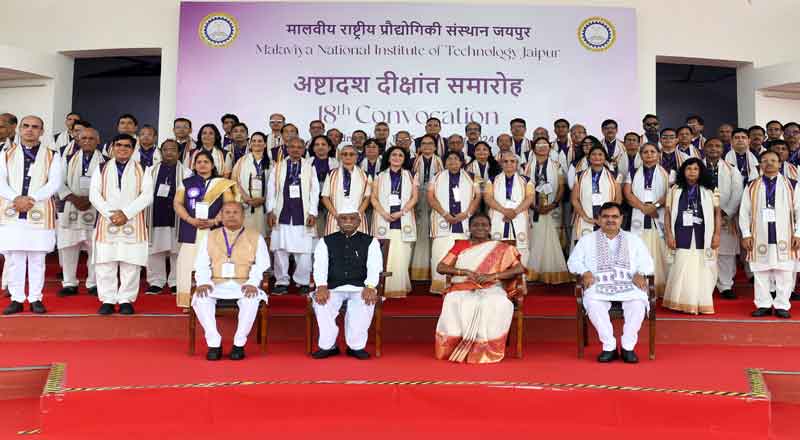NEET Paper Leak Scandal: Aspirants Pay Rs 40 Lakh, Yet Scores Disappoint
- The NEET exam faced controversy as four individuals paid Rs 40 lakh each for leaked question papers.
- Anurag Yadav’s case highlights the irony: despite receiving and memorizing the leaked NEET question paper, he scored only 185 out of 720 in the exam.
- The scandal has sparked nationwide outrage among students, leading to protests against the perceived irregularities in the examination process.
- The gravity of the situation prompted the Central Bureau of Investigation (CBI) to intervene, while the central government swiftly cancelled NEET-UG examinations pending further investigation.
- The Supreme Court of India has taken cognizance of the matter, issuing a notice to the National Testing Agency (NTA) to explain the allegations of paper leaks and lapses in the examination protocol.
- Anurag Yadav confessed to police that he received the leaked question paper from his uncle, Sikander Prasad Yadvendu, who orchestrated the scheme for four aspirants, charging Rs 40 lakh each for the papers.
In a startling revelation, the NEET examination, India’s prestigious medical entrance test, has been marred by controversy as four individuals, including Anurag Yadav from Samastipur, Bihar, paid a hefty sum of Rs 40 lakh each for leaked question papers, only to perform dismally in the actual exam.
Anurag Yadav’s case epitomizes the irony of the situation. Having received the leaked NEET question paper in advance, memorized the answers, and confidently appeared for the exam, Yadav’s hopes were dashed when he scored a mere 185 out of 720. This score, with a percentile of 54.84, reflected his poor performance across subjects: Physics (85.8%), Biology (51%), and Chemistry (5%).
The scandal has sparked nationwide outrage among students, leading to protests against the perceived irregularities in the examination process. The gravity of the situation prompted the Central Bureau of Investigation (CBI) to intervene, while the central government swiftly cancelled NEET-UG examinations pending further investigation.
The Supreme Court of India has also taken cognizance of the matter, issuing a notice to the National Testing Agency (NTA) to explain the allegations of paper leaks and lapses in the examination protocol.
In Bihar, where the leaks originated, four arrests have been made, including Anurag Yadav himself. Yadav, along with three others, stands accused of obtaining and using the leaked question papers to gain an unfair advantage in the NEET exam.
Anurag Yadav, in his confession to the police, revealed that he received the leaked question paper a day before the exam from his uncle, Sikander Prasad Yadvendu. Yadvendu, purportedly the mastermind behind the scheme, admitted to arranging leaked papers for four aspirants, demanding Rs 40 lakh from each candidate for the privileged access.
The Economic Offences Unit (EOU) of Bihar Police disclosed that Yadvendu’s confession implicated influential figures, including politicians and individuals known for their involvement in leaking high-stakes examination papers like NEET. His statement, recorded under Section 161 of the Criminal Procedure Code (CrPC), highlighted the pervasive nature of corruption and malpractice in educational assessments.
The unfolding scandal has cast a shadow on the credibility of India’s examination system, raising serious concerns about transparency and fairness in conducting national-level tests. It underscores the urgent need for stringent measures to prevent leaks, ensure accountability, and safeguard the integrity of academic evaluations crucial for students aspiring to careers in medicine and allied fields.
As investigations continue and legal proceedings unfold, the NEET paper leak scandal serves as a stark reminder of the challenges posed by educational malpractice, demanding swift and decisive action to restore trust and uphold the sanctity of competitive examinations in India.
(With inputs from agencies)





